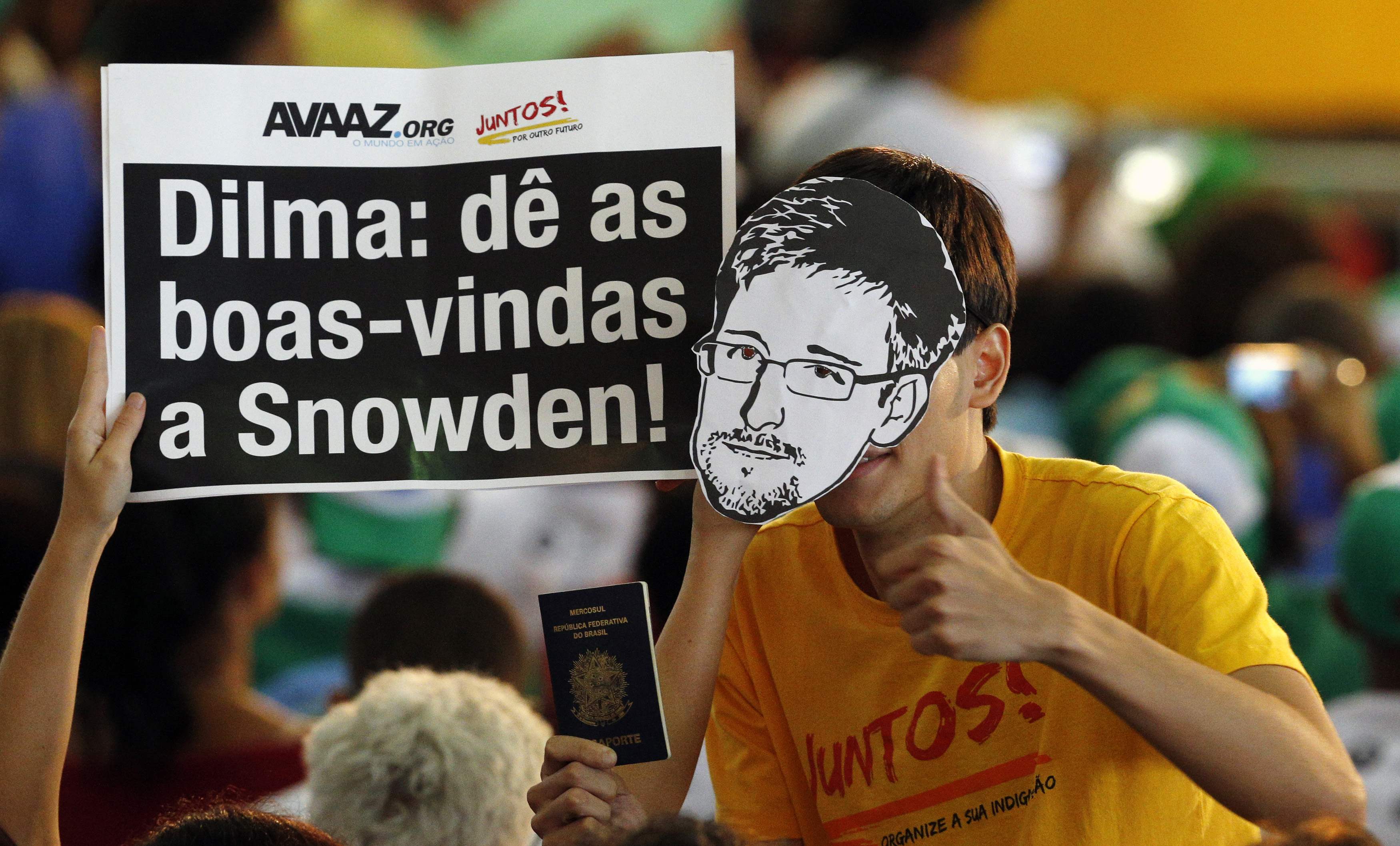WASHINGTON – After months of gushing intelligence leaks and warnings the US national security state has gone rogue, President Barack Obama will finally give his response to Edward Snowden on Friday.
In a long-awaited speech, Obama will propose curbs on ravenous worldwide National Security Agency (NSA) phone and Internet data dragnets, exposed by the fugitive intelligence contractor.
The event will mark Obama's latest attempt to remold the national security apparatus born in the fearful months after the September 11 attacks and cemented by a decade of terror wars.
Obama is also expected to back extra privacy protections for foreigners swept up by the programs and limits on spying on friendly world leaders.
His challenge will be to prove that data mining programs, made possible by swift advances in technology, can enhance national security while restoring public confidence that individual freedoms are safe.
"I think what we are likely to see is less reform than civil libertarians would like, and more of a reform than the security services would like," said Neil Richards, a professor of law at Washington University, St Louis.
Obama's statement, in effect, will be a repudiation to Snowden, who warned in a Christmas message from exile in Russia that governments had "created a system of worldwide surveillance, watching everything we do."
The White House spin machine has set expectations for modest but meaningful reforms, trying to balance the horror at NSA sweeps provoked among US allies and civil liberties advocates with resistance to change from US spy agencies.
"When you think about it, we're really having a debate about what are Americans' fundamental relationship with their own government," said Senator Patrick Leahy, who backs more restrictions on surveillance.
Obama's speech follows a comprehensive White House policy review, consultations with security agencies, transparency campaigners and telecommunications firms, and prolonged personal soul-searching.
He has had to reconcile his duties as a commander-in-chief sworn to keep Americans safe and his oath to uphold the US Constitution.
Not to mention his political flank – Obama knows his Republican enemies would pounce if a future terror attack could be pinned on restrictions he placed on spy agency activity.
Pressure from the left, which helped elect him as an anti-war candidate in 2008, is also intense.
"President Obama's speech on Friday will not only determine the direction of national security policies and programs, but also define his civil liberties legacy," said Anthony Romero, executive director of the American Civil Liberties Union.
The White House has signaled the president has considered requiring a third party to retain records on the duration and destination of nearly all phone calls by Americans captured in NSA collection.
Currently the secretive agency holds the data itself for five years. However, US telecommunications firms, compelled to hand over such data by law, have made clear they do not want the job.
Some legal experts believe Obama may choose to limit the amount of time call data can be held. He may also curb the scope of NSA power to exploit the data.
Currently, US spies can access call records three "hops" away from a terror suspect. Obama may limit that to two "hops."
The idea of taking the responsibility for data storage away from the NSA was endorsed by a Review Board report commissioned by Obama, which came up with 40 recommendations for reform.
But the group did not recommend an end to the program. In fact, one member, former deputy CIA director Michael Morell said the program could have prevented 9/11 had it been in place in 2001.
However, the group did warn that some authorities "expanded or created in the aftermath of September 11 unduly sacrifice fundamental interests in individual liberty, personal privacy, and democratic governance."
The president's speech will be closely watched for any changes to the PRISM program, which mainly sweeps up Internet data on foreigners, based on records acquired from Internet companies like Google, Yahoo and Apple.
Obama may also highlight restrictions on NSA phone taps on allied foreign leaders, following a furious response from German Chancellor Angela Merkel to Snowden's claims US spies eavesdropped on her conversations.
Although Obama theoretically has the power to impose restrictions on NSA bulk data collection, such a step appears unlikely.
More likely, he will call on Congress to join a process of public deliberation before changing to the law. But placing such a heavy responsibility before such a divided, dysfunctional body is a risk, and the classified nature of NSA operations could also hamper a public debate.
"We hope that the president will not simply act as a passive observer for Congress's deliberations over this," said Kate Martin, director of the Center for National Security Studies, a civil liberties watchdog.
Martin hopes Obama will ensure sufficient disclosure on US programs and prevent stalling from the clandestine community.
Richards said a lasting reform of the post-September 11 authorities could only be accomplished through legislation.
Given the massive pace of technological advances, an incremental focus on today's operations would be overtaken by the capabilities of spy agencies in just a few years, he said.






















































